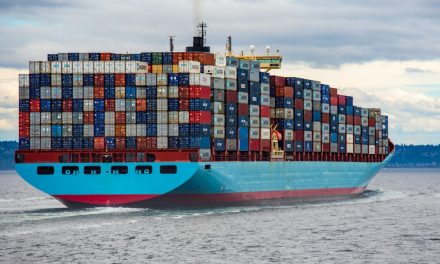The World & Pandemics: How 2020 is Disrupting Manufacturing
By Lucy Victoria Desai

Manufacturing once accounted for 25% of the UK’s gross domestic product (GDP) before it declined the 1970s. The sector is always at risk for disruption, particularly during the current situation amid pandemics and public pressure for the government to regulate business’ sustainability. So, how can the manufacturing industry find its footing and prevail in an everchanging environment?
Here, we’ll take a look at how 2020 has disrupted manufacturing with Covid-19 and the environment.
Covid-19
Unfortunately, the start of the new decade has been a difficult one, with the Covid-19 pandemic causing major disruptions to all ways of life, including our work lives. Many workers have been furloughed, are working from home, or if you’re deemed an essential worker, you’re playing an extremely important role in ensuring essential goods and foods are produced for the nation. Global production economies are being affected as worldwide supply chains suffer — British manufacturing has a duty to remain functional where essential.
Social distancing regulations are in place, where work is carried out two metres away from colleagues wearing suitable protective personal equipment (PPE) and frequent cleaning procedures.
FPE Seals, suppliers of wiper seals and piston rings, commented: “All visitors and contractors to our sites must complete a standard brief questionnaire regarding certain high-risk Covid-19 transmission factors. All personal workspaces and shared areas such as canteens have been rearranged and where necessary screens installed, so that colleagues are kept a safe distance apart. Social distancing and hygiene measures are also in place at our trade counters.”
It’s important for factories to find the perfect balance between being safe and being productive as social distancing can be detrimental to productivity and low output — particularly as we should expect social distancing measures to continue until a vaccine is developed. According research by CV-Library, 76.8% of employers believe the pandemic will have a negative impact on their business and 55.1% are worried about Covid-19 spreading throughout their workplace.
Due to lockdown, national output is likely to drop by a third around the first and second quarters of this year — the most serious recession since the financial crash of 2008.
So far, manufacturing leaders have focused on resolving the immediate challenges Covid-19 poses to keep business stable. Rapid response teams have been created to better understand their production demand changes, labour support challenges, and supply chain constraints.
Manufacturers need to design a business structure that is futureproof to increase resilience, protect operations, and support workers in the event of another crisis as well as to uphold a competitive advantage and grow once economies improve. Rigorous infection control, social distancing enforcement, and technologic expansion will be the new norm for manufacturers who are weathering shutdowns and trying to remain productive.
Increasing output per worker has challenged the UK even before lockdown, and to do so tech investments and innovations will be essential to boost productivity as well as infrastructure for shops to adjust to ecommerce and deliveries. Government intervention will be imperative for this to happen. Interestingly, Ford is testing wrist bands that sense and alert workers when they are within six feet of someone else — the Annual Manufacturing Report 2019 reported 81% of UK manufacturers say they are ready to invest in new digital technologies to boost productivity, a figure likely higher today. We expect to see many more innovations to help us adapt to the new working world.
The environment
The parallels between the Covid-19 pandemic and the environment are undeniable, and manufacturers are falling under pressure to reduce their impact on the environment — studies have found that death rates are ‘significantly higher’ in places with high air pollution rates, and the destruction of biodiversity makes pandemics more likely. Observing how quickly the majority of us have adapted our lives during the outbreak, public pressure on governments to take action, and communities working together to make key changes is helping progress the conversation around the environment and climate change.
Notably, India’s blue skies demonstrates that businesses can make a revolutionary change. According to statistics, since lockdown daily carbon dioxide emissions have plummeted by 58% across the European Union, Mayor of London Sadiq Khan said that central London’s emissions have dropped by 48%, and the Guardian reported that global carbon emissions caused by the fossil fuel industry could fall by 2.5 billion tonnes.
The International Energy Agency estimates that global carbon emissions will drop the most in history this year – but that’s only by eight per cent. More is needed to be done — manufacturers need a formal approach to mitigate their effects on the environment to seek constant and gradual improvements in sustainability. These can include:
- reducing emissions by 25%
- reducing energy consumption by 25%
- reducing waste generated internally by 20%
- reducing landfill waste by 50%
- increasing recycling by 75%
- reducing water consumption by 15%
- engaging in a circular economy
- using recyclable materials
- sourcing supplies locall
According to the Annual Manufacturing Report 2019, 66% of UK manufacturers say the British people do not understand the importance of manufacturing to the economy. And while many industries are fighting to stay afloat during the current situation while tackling important current issues, technology and government intervention is needed to help manufacturing.
Sources
https://www.themanufacturer.com/uk-manufacturing-statistics/
https://gesrepair.com/social-distancing-for-manufacturers-is-it-possible/
https://blogs.lse.ac.uk/politicsandpolicy/social-distancing-productivity/











